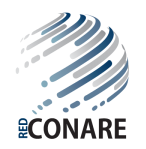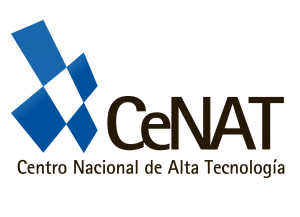Costa Rica Big Data School 2022
Costa Rica National High Technology Center
December 5-9, 2022
The Costa Rica National Research and Education Network: RedCONARE and the Costa Rica National High Technology Center (CeNAT) are proud to host the sixth Costa Rica Big Data School 2022.
This school will be hands-on style. Working with live coding in conjunction with lectures discussing the art of scientific programming, algorithm design, and data science. Instructors will guide attendees through the Computational Research cycle. Students will participate in a coding challenge to develop a computational model writing code in Python, generate data to verify and validate information, applying machine learning techniques to the data set and find interesting outcomes and revalidate the data.
We hope you enjoy what we have prepared, and take full advantage of this exciting event.
M.Sc. Carlos Gamboa Venegas
RedCONARE Scientific Coordinator
Costa Rica Big Data School Chair
Instructors
Je’aime Powell
Systems Administrator & Technical Research Design Analyst
Texas Advanced Computing Center

Biography: Je’aime Powell currently works as a Senior Systems Administrator and Technical Research Design Analyst at the Texas Advanced Computing Center(TACC) within the University of Texas at Austin. While supporting high-performance computing users, he also leads hackathons, STEM-based high school summer camps, and facilitates related training sessions. His research in the fields of Intelligent Systems and Decision Systems Support with a focus on the development of adaptive IoT environmental sensors. He holds both a Master’s degree in Applied Mathematics with a Concentration in Remote Sensing and a Bachelor’s in Computer Science from Elizabeth City State University.
Charlie Dey. B.A.
Director, Training And Professional Development
User Services Texas Advanced Computing Center

Biography: Charlie is the Director of Training and Professional Development with the User Services group at TACC with a background in web development and scientific computing. Charlie’s responsibilities at TACC include organizing, developing content, and building curriculums for TACC’s academic course selection taught in conjunction with several departments at the University of Texas at Austin, as well as for TACC’s professional development and educational training. Prior to joining TACC, he worked as a Senior Application Developer for the Carle Foundation, and as a computer science instructor at Parkland College in Champaign, IL. He was also a member of a specialized application development team at the University of Illinois and has also been a contracted research consultant for NASA Ames Research Center, studying computational immunology and bioinformatics. Charlie holds a Bachelor’s Degree concentrating in Computer Science and Biology from Eastern Illinois University, and certifications in 3D programing and visualization.
Keynote Speakers
Saúl Calderón Ramírez
Researcher and Professor
Tecnológico de Costa Rica

Biography:
• Ph. D. in Computer Science, De Montfort University (DMU), United Kingdom.
• Magister Scientae in Electrical Engineering with a specialization in digital systems, University of Costa Rica (UCR).
• Bachelor of Computing and Informatics, University of Costa Rica.
• Data science department coordinator, Spartan Approach.
• Interests: Digital signal processing (sound, images, video), Natural Language Processing, Deep Learning, pattern recognition, machine learning.
• Coordinator of the Pattern Recognition and Machine Learning Group (PARMA-Group)
• Publications: Around 40 articles in international conferences (ICIP, IJCNN, etc.) and journals (IEEE Transactions on Artificial Intelligence, Applied Soft Computing, etc.), in the area of digital signal processing, pattern recognition and deep learning.
• Courses taught: Introduction to pattern recognition laboratory, School of Electrical Engineering, UCR. Introduction to the automatic analysis of soccer videos, University of Buenos Aires, Argentina. Parallel Programming with OpenCL, Latin American Conference on High Performance Computing 2013 (CLCAR-2013), Introduction to Programming, Introduction to Pattern Recognition, Machine Learning, Neural Networks, Deep Learning Analog Design Laboratory, Operations Research, Process Quality Assurance software, and programming languages at the TEC school of computing.
• Professional experience: Intel: research and development, Search Technologies: Big Data consultant, Researcher at the Center for Research in Information and Communication Technologies (CITIC), Image Processing and Computer Vision group (UBA, Argentina) and the Pattern Recognition and Intelligent Systems Laboratory (PRIS-Lab), among others.
Niall Gaffney
Director Of Data Intensive Computing
Data Management & Collections; Scalable Computational Intelligence
Texas Advanced Computing Center

Biography: Niall Gaffney’s background primarily revolves around the management and utilization of large inhomogeneous scientific datasets. Niall, who earned his B.A., M.A., and Ph.D. degrees in astronomy from The University of Texas at Austin, joined TACC in May 2013. Most of his focus has been on creating environments to foster better data practices from improving metadata, data processing, analysis, and reuse. He focuses on improving researchers’ data practices to accelerate outcomes and better feed the Machine Learning and Artificial Intelligence applications which are becoming more broadly adopted in science and engineering research fields.
Lilliana Sancho Chavarría
Profesora, investigadora de la Escuela de Ingeniería en Computación
Instituto Tecnológico de Costa Rica

Biografía: Profesora, investigadora de la Escuela de Ingeniería en Computación del Instituto Tecnológico de Costa Rica. Actualmente es Coordinadora de la Unidad de Posgrados de Computación. Es Ingeniera en Computación (TEC), tiene una Maestría en Ciencias de la Computación (University of Oregon, USA) y Doctorado en Ingeniería (TEC-UCR). En el pasado fue líder y directora de proyectos de desarrollo de software en el ámbito privado. Ha realizado investigación en visualización de la información, ingeniería de software educativo, aplicaciones de la informática para la conservación de la biodiversidad y pensamiento computacional.
Resumen de la charla: Se ofrece una perspectiva de la visualización de información para el desarrollo de pensamiento computacional y, particularmente, del análisis de código fuente de ejercicios de programación de estudiantes para analizar comprender su capacidad de desarrollo de pensamiento computacional.
Sofía Ulloa

Biografía: graduada de ingeniería en biotecnología del Instituto Tecnológico de Costa Rica. Durante sus estudios de pregrado y posterior a estos se dedicó a la investigación científica en el área de proteínas y vacunas. Posteriormente, obtuvo su maestría en Investigación Biomédica de la Universidad de Navarra (España) en donde estudió posibles tratamientos virales contra el cáncer. Desde el 2018 se ha dedicado al análisis de datos de industria farmacéutica mediante el montaje de visualizaciones para la interpretación de resultados haciendo uso de herramientas de visualización de datos como Spotfire y Tableau y manejo de datos con python.
Fundadora de “Dateando con Sofía” un espacio de difusión en español sobre ciencia de datos con recursos para adquirir conocimientos y herramientas de utilidad en el área.
Asociada de Data Mujer. Es amante del aprendizaje continuo, la naturaleza, la comida y tomar siestas.
Ana Paola Mora Murillo

Biografía: Tiene 18 años y es una programadora apasionada por facilitar la vida del ser humano e innovar a través de la tecnología. Desde pequeña, ha mostrado interés por la informática y, actualmente, ha buscado aprender cada vez más. Ha empezado por su cuenta y se le han presentado diversas oportunidades, gracias a ellas ahora tiene conocimientos en desarrollo web y lleva una certificación en Ciencia de Datos. Asociada de Data Mujer.
Agenda
| FECHA & HORA | Monday 5 | Tuesday 6 | Wednesday 7 | Thursday 8 | Friday 9 |
| 09:00 – 10:45 | Opening | Python Object | Running a model | Machine Learning | Challenge |
| 10:45 – 11:00 | Break | ||||
| 11:00 – 12:00 | Team Creation Computation Thinking | Main Keynote Speaker: Niall Gaffney, TACC | Keynote: “Data Quality for Deep Learning” Speaker: Saúl Calderón, Dr | Keynote: La visualización de información como instrumento para el desarrollo de pensamiento computacional. Speaker: Lilliana Sancho, Dra | Keynote: Ciencia de datos: perspectiva generacional de dos mujeres en el área. Speakers: Sofía Ulloa & Ana Paola Mora Murillo |
| 12:00 – 13:00 | Lunch | ||||
| 13:00-14:45 | Jupyter Notebooks | Python Interactions | Dataset creation | Beginning of Model Analysis Challenge | Challenge Completion |
| 14:45 – 15:00 | Break | ||||
| 15:00 – 17:00 | Python Primer | Python Interactions | Dataset creation | Challenge | Teams Report Out Findings |
Registry
Tuition fee
Participation is free. There are no tuition costs associated with participating in this school for those affiliated to CONARE institutions.
Maximum quota
The maximum quota is 50 participants.
Inscription
The following form has to be fully filled before November 4th. Accepted participants will be notified via email on Monday 7th.
Important dates:
- The closing of the application process to the School: November 4th.
- Notification of acceptance/rejection in the participation of the School: November 7th.
Requirements
Being a student, teacher or researcher of any public university (UCR, TEC, UNA, UNED, UTN), from CONARE or any of its ascribed programs: CeNAT, PEN and SINAES.
Also, we are admitting functionaries of the Ministries and Public Entities of the Government of Costa Rica. (Limited spaces)

Have an intermediate English knowledge (reading and hearing). All of the presentations and exercises are going to be in this language.

Having basic programming skills with Python and basic Linux handling.

Organizers
RedCONARE is the Costa Rica National Research and Education Network (NREN). It provides technical infrastructure and communication services like eduroam, Mconf, LA Referencia, and the Colaboratorio, among others. The NRENs or Advanced Networks are common spaces that the universities research community has among the world to enhance their knowledge and contributions to humanity. In Costa Rica, RedCONARE has been positioning as a research space and join collaboration among its members.
The Advanced Computing Laboratory (CNCA) at Costa Rica High Technology Center (CeNAT) is a multidisciplinary space where scientific discovery is accelerated through an advanced computing infrastructure. This infrastructure includes not only specialized and updated hardware, but also a set of efficient applications and well-trained staff in order to take advantage of all the technology. This allows CNCA to work in the main dimensions of research, project development, training, and services provision.
TACC inspires and educates the next generation of computational scientists and technologists and increases the public’s understanding of the roles computing and science play in shaping our society. To educate the next generation of researchers and computational professionals, TACC developed a unique scientific computing curriculum for The University of Texas at Austin.
Location



